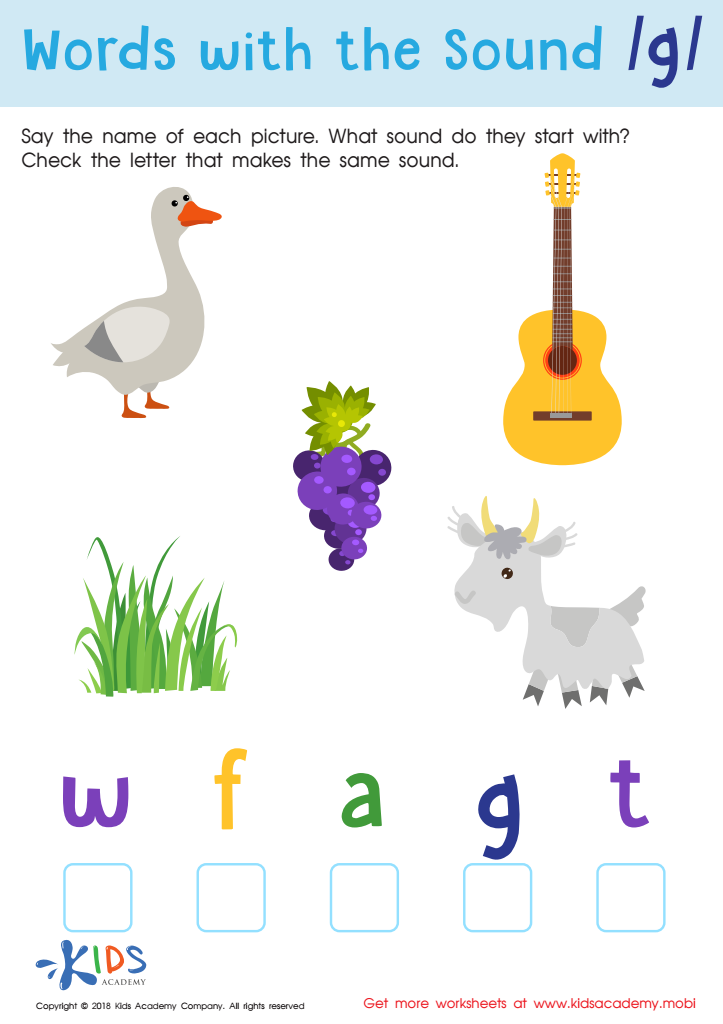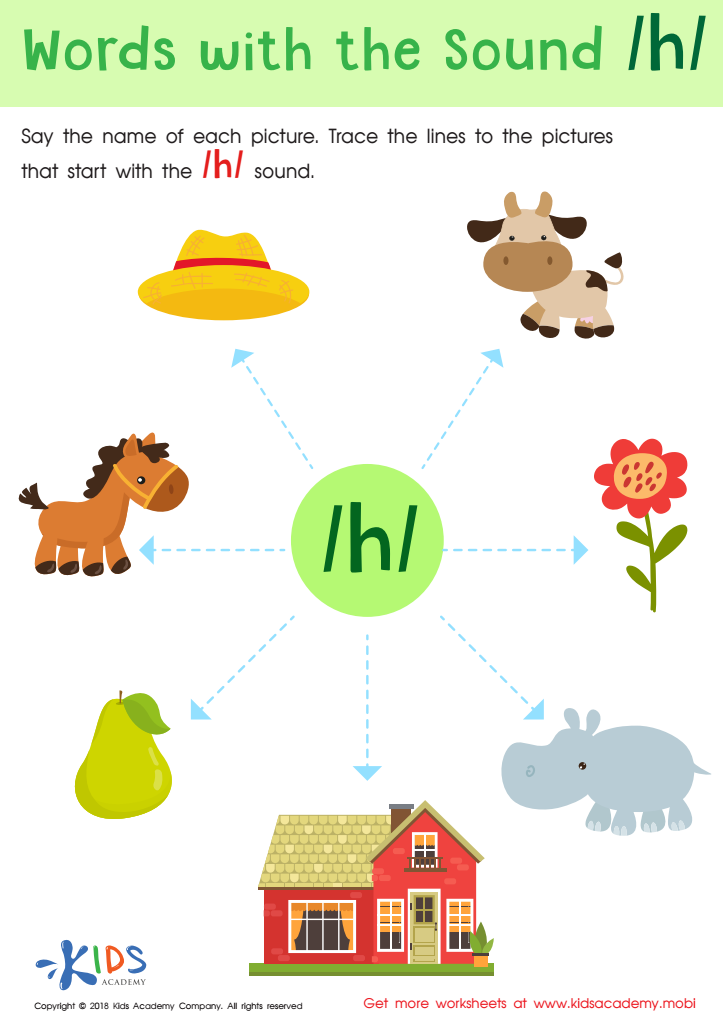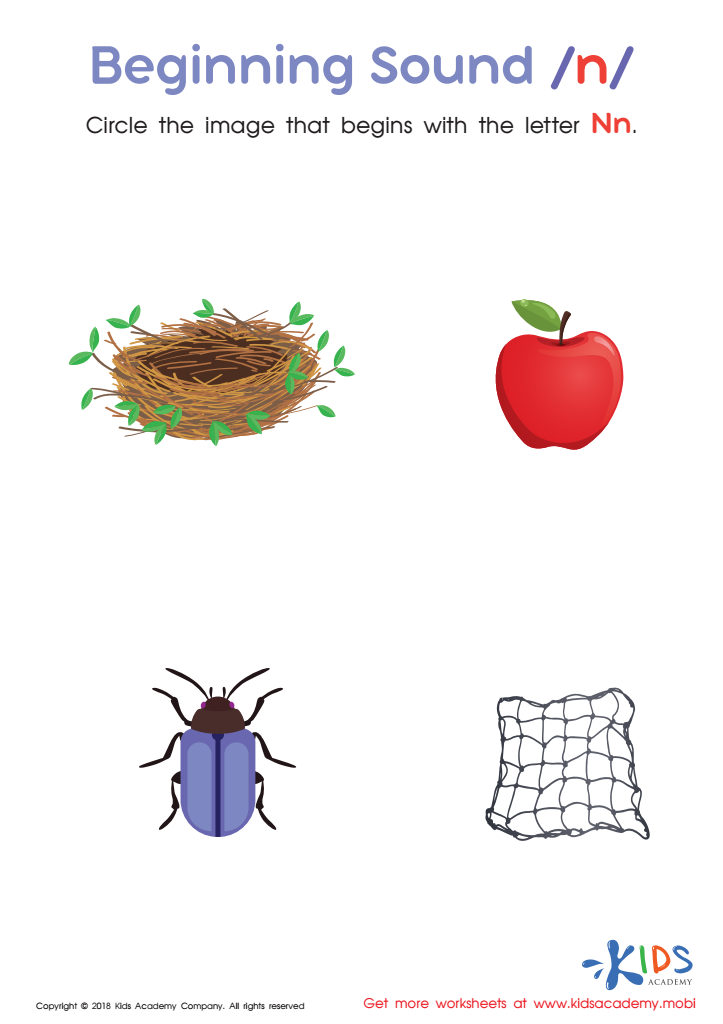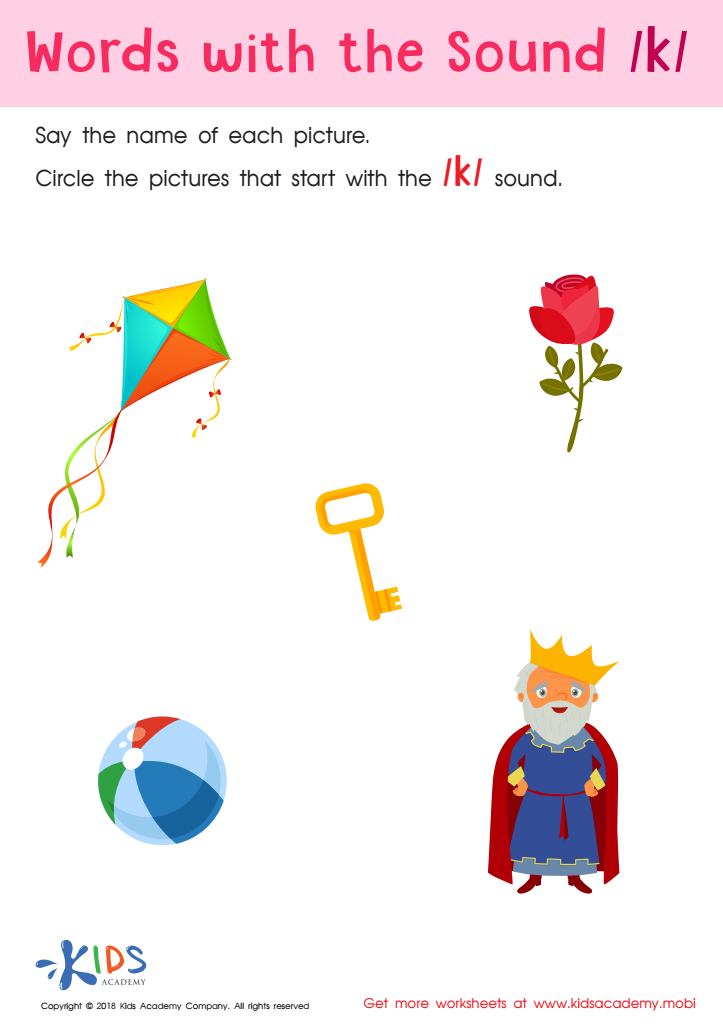Phonics Skills Beginning Sounds Worksheets for Ages 5-9
4 filtered results
-
From - To
Introduce young learners to the joy of reading with our Phonics Skills Beginning Sounds Worksheets, designed for ages 5-9. These engaging worksheets help kids grasp the fundamental connection between letters and sounds, paving the way for fluent reading. Each activity combines fun elements with educational value, focusing on identifying and pronouncing beginning sounds in words. Perfect for classroom use or at-home practice, our worksheets cater to various learning styles, ensuring every child can build a solid phonics foundation. Explore our diverse collection to support your child's literacy journey and watch their confidence soar!


Words with sound g Reading Worksheet


Words with sound h Reading Worksheet


Beginning Sound «n» Worksheet


Words with sound k Reading Worksheet
Phonics skills, particularly learning beginning sounds, are fundamentally important for children ages 5-9 as they are foundational to developing literacy. During these early years, establishing a strong understanding of phonics enhances children’s ability to decode words, making reading more accessible and enjoyable. When children recognize the beginning sounds of words, they are better positioned to segment and blend sounds to form words. This capability is crucial for reading fluency.
Parents and teachers should prioritize phonics skills because they directly impact a child’s reading ability and comprehension. Strong phonics skills enable children to tackle unfamiliar words, paving the way for independent reading. This, in turn, fosters a love for reading, increases vocabulary, and enhances overall language skills. Triumphs in phonics boost children’s confidence, encouraging them to take more intellectual risks, ultimately supporting their academic growth across all subjects.
Furthermore, early phonics education lays the groundwork for future academic success. Children who are proficient readers by the third grade are more likely to be successful in later school years. As such, investing in phonics education at an early age is a critical step for parents and teachers seeking to set their children up for lifelong learning and achievement.
 Assign to My Students
Assign to My Students















